27 Engaging and Educational Games for 3-Year-Old Kids: Boosting Intelligence Through Play
At age 3, children are naturally curious and eager to explore. Engaging them in educational games can significantly enhance their cognitive, motor, and social skills. This article of NeuroLand contains 27 carefully selected games designed to entertain and educate your 3-year-old kid.
🎮 Top Educational Games for 3-Year-Old Kids
In the table below, we have prepared a comprehensive classification of the games included in this article for your 3-year-old child.

1. Neuroland (Kids Learning: Games for Kids)
This fantastic app offers over 40 interactive activities targeting memory, attention, math, and language skills. It’s an excellent tool for bilingual development and cognitive enhancement for your kids.
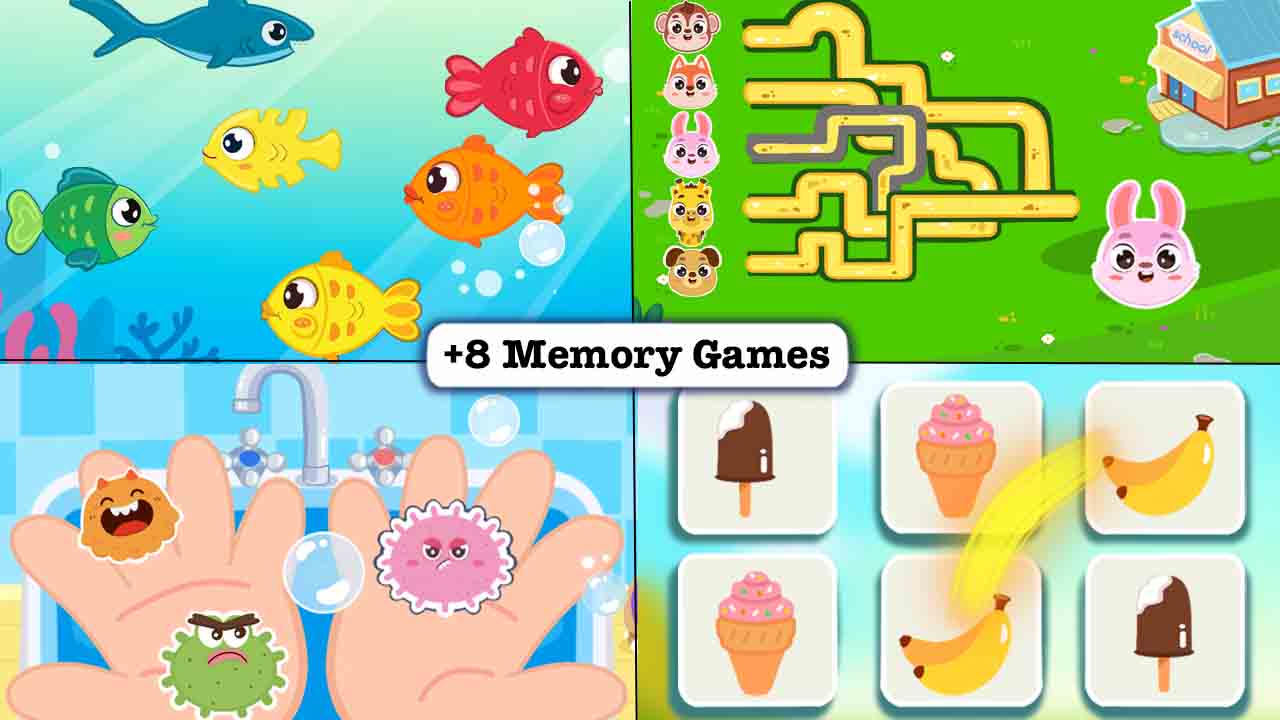
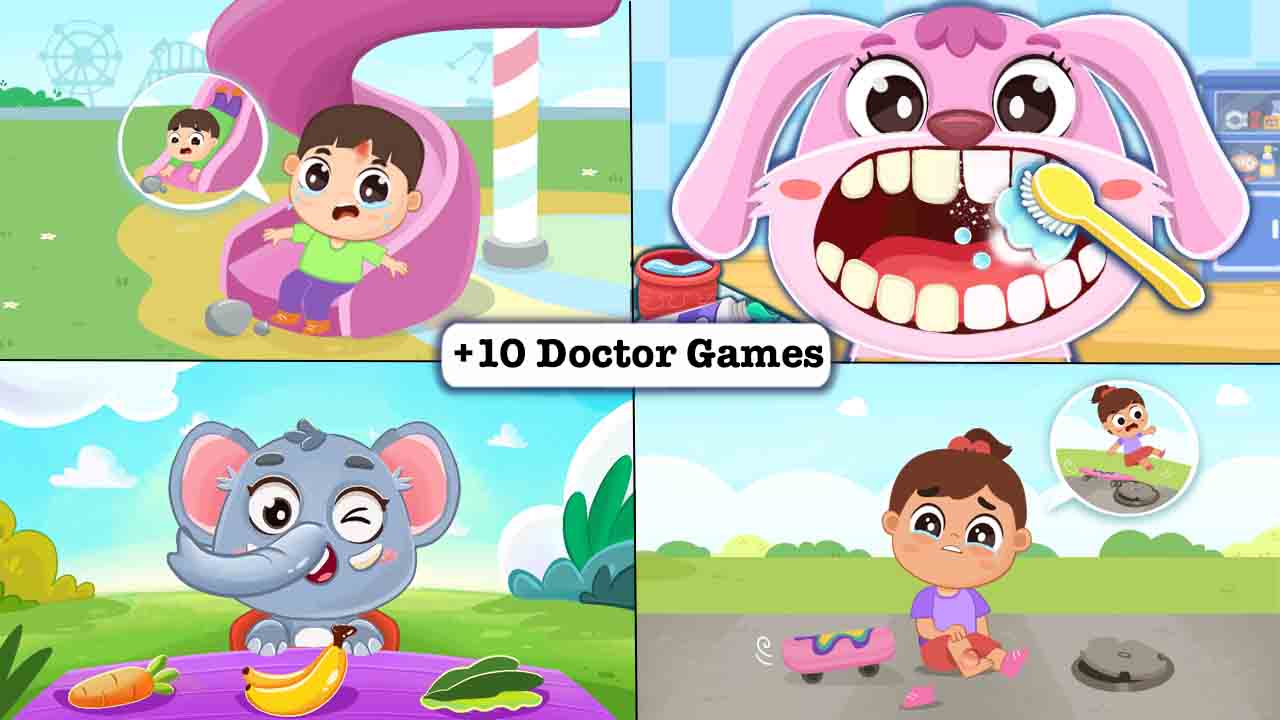
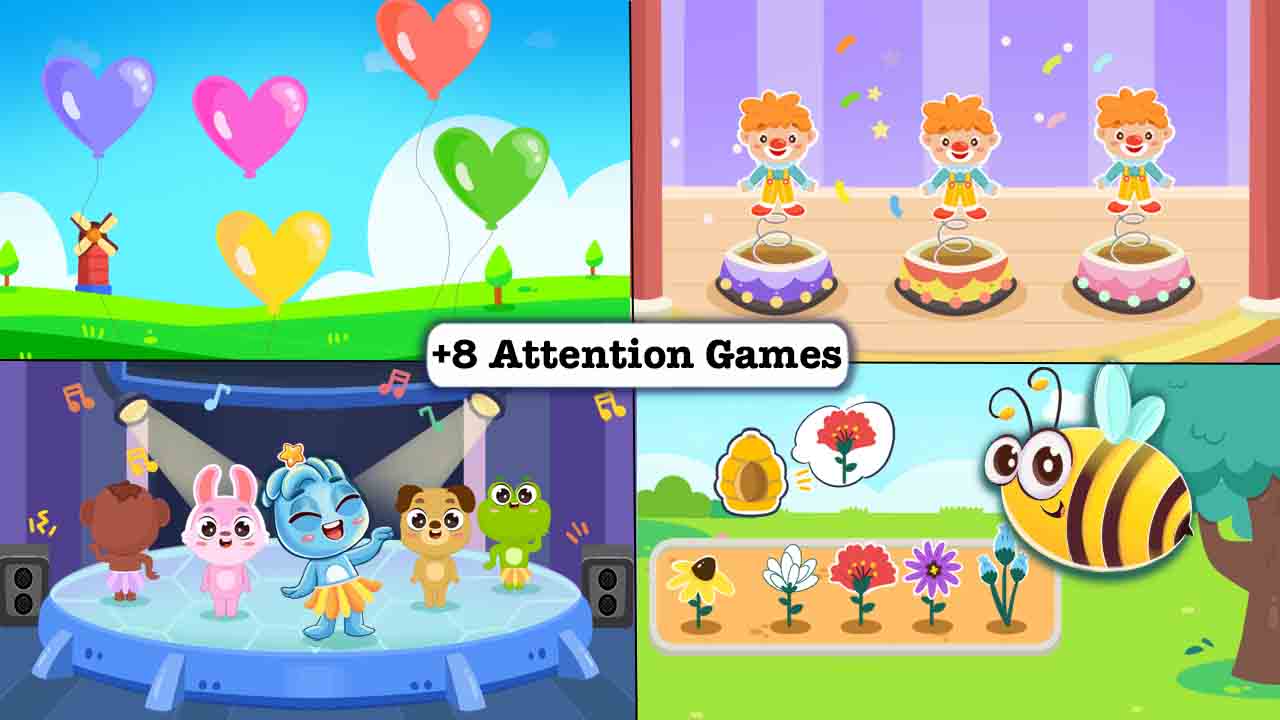
This safe educational game serves as a comprehensive resource for children aged 3 to 6, making it the perfect companion for parents to teach essential skills to their little ones.
2. ABCmouse.com Early Learning Academy
A comprehensive program with over 10,000 activities covering reading, math, science, and art. It’s structured learning path adapts to your child’s progress, making learning personalized and effective.
3. ABCya! Preschool Games
This platform provides fun games that teach letters, numbers, and basic computer skills, all designed for preschoolers.
4. Lingokids
An interactive app offering games, songs, and activities that develop language, math, and problem-solving skills. Its colorful interface keeps children engaged while learning.
5. Math Kids: 123 Counting Game
This app introduces numbers and basic math concepts through engaging activities like baking cakes and shopping adventures.
6. Toddler Games for 3-Year-Olds
With over 500 games, this app includes coloring, puzzles, sorting, and tracing activities that enhance fine motor skills and creativity.
🧠 Cognitive and Motor Skill Development Games
7. Shape and Color Sorting
Use colored paper cut into various shapes. Encourage your child to sort them by color and shape, enhancing their recognition and categorization skills.
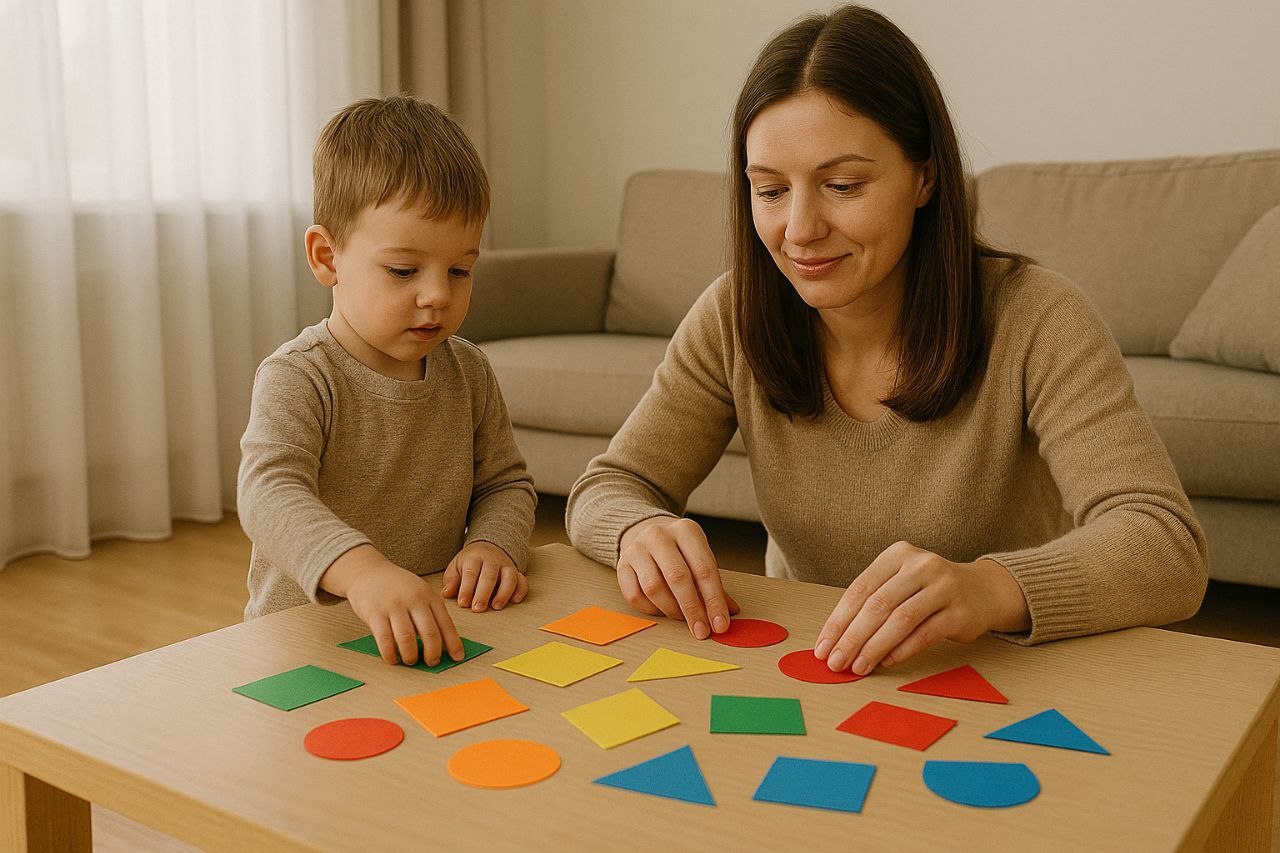
8. Memory Matching Cards
Create pairs of cards with images of animals, fruits, or everyday objects. Place them face down and take turns flipping two at a time to find matches, boosting memory and concentration.
9. Simon Says
A classic game that improves listening skills and body awareness. Give simple commands like “Simon says touch your toes,” and see if your child can follow along.
10. Obstacle Course
Set up a simple indoor obstacle course using pillows, chairs, and toys. Guide your child through crawling under tables, jumping over cushions, and balancing on lines, promoting physical coordination.

🎨 Creative and Imaginative Play
11. Playdough Creations
Provide playdough and tools like cookie cutters and rolling pins. Encourage your child to create shapes, animals, or their favorite foods, enhancing fine motor skills and creativity.
12. Dress-Up and Role Play
Use costumes or everyday clothes to play dress-up. Act out different scenarios like shopping, cooking, or doctor visits, fostering imagination and social understanding.
13. Storytelling with Puppets
Create simple puppets using socks or paper bags. Encourage your child to tell stories or reenact favorite tales, boosting language skills and creativity.
14. Building Blocks
Use blocks to build towers, houses, or bridges. This activity enhances spatial awareness, problem-solving, and fine motor skills.
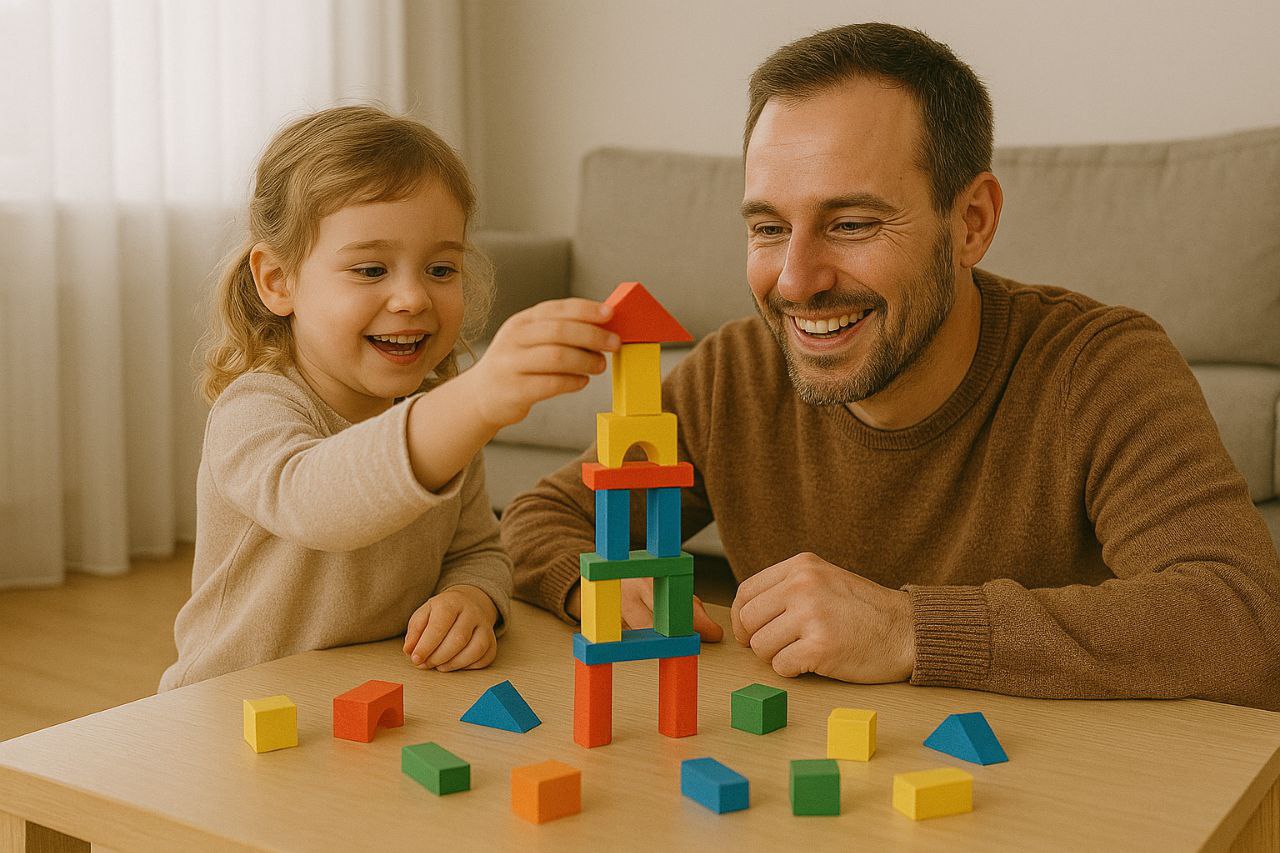
🎵 Musical and Rhythmic Activities
15. Musical Statues
Play music and have your child dance. When the music stops, they must freeze like a statue. This game improves listening skills and self-control.
16. Homemade Instruments
Create simple instruments like shakers using rice-filled containers or drums with pots and spoons. Explore rhythms and sounds together.
17. Sing-Along Sessions
Sing nursery rhymes and songs with repetitive lyrics. Encourage your child to join in, enhancing memory and language development.
🧩 Problem-Solving and Logical Thinking
18. Simple Puzzles
Provide age-appropriate puzzles with large pieces. Solving puzzles enhances hand-eye coordination and problem-solving skills.
19. Sorting Games
Use everyday items like buttons or coins. Ask your child to sort them by size, color, or type, developing categorization skills.
20. Pattern Recognition
Create simple patterns using colored beads or blocks. Have your child continue the pattern, fostering logical thinking.
🌍 Exploring the World
21. Nature Walks
Take a walk and collect leaves, stones, or flowers. Discuss their colors, shapes, and textures, promoting observation skills.

22. Gardening Together
Plant easy-to-grow seeds in a pot. Teach your child about plant growth and responsibility through regular watering and care.
23. Weather Chart
Create a simple chart to track daily weather. Discuss terms like sunny, cloudy, or rainy, enhancing vocabulary and understanding of nature.
🏠 Everyday Learning Activities
24. Cooking Simple Recipes
Involve your child in making simple dishes like sandwiches or fruit salads. This teaches measurements, following instructions, and fine motor skills.

25. Cleaning Up Game
Turn tidying up into a game by timing how quickly toys can be put away. This instills responsibility and organization.
26. Shopping Role Play
Set up a pretend store with items and play money. Take turns and buy some stuff.


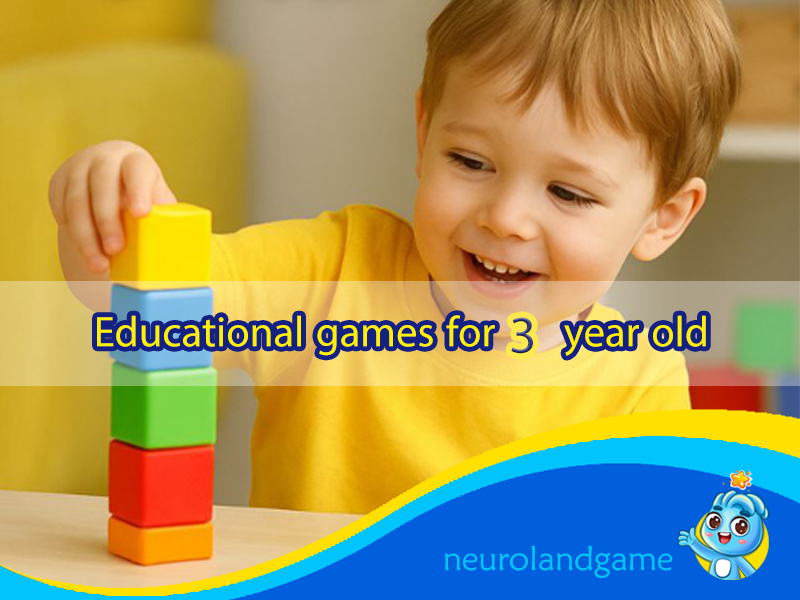





Thanks for finally talking about > Neuroland Games
– Fun Learning for Kids < Liked it!
It’s amazing to pay a quick visit this site and reading the views
of all colleagues concerning this paragraph, while I am
also keen of getting familiarity.